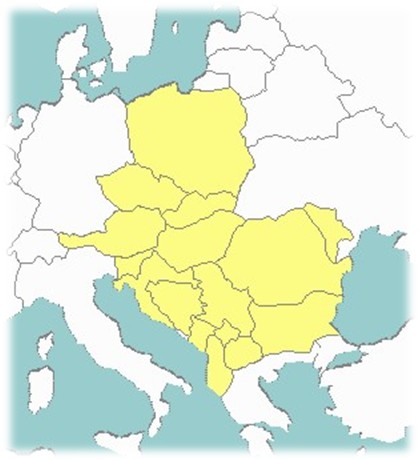









”Dunarea de Jos" University of Galati, Romania
Faculty of Mechanical Engineering
Department of Machine Design and Graphics
Prof. PhD Eng. Minodora RIPA
Short description, research and educational contributions
The Faculty of Mechanical Engineering (FME) is the main regional educational trainer of specialists in the fields of Mechanical Engineering, Mechatronics and Robotics, Industrial Engineering, Engineering and Management, Environmental Engineering and Automotive Engineering. The educational offer includes Master study programmes, which continue the Bachelor study programmes, and doctoral study programmes in Mechanical Engineering and Industrial Engineering fields for more than 800 students. The Faculty had introduced into its management the quality management system complying with the international standards ISO 9001. The credit system compatible with the ECTS has been fully introduced at the Faculty, which enables the mobility of students not only in Romania but also within the European countries.
The academics are competent, well-trained, selected by competition and evaluated on the basis of rigorous criteria, similar to the European ones. They continually improve their knowledge through post-graduate studies PhD programmes and postdoctoral fellowships in advanced countries, teaching and training programmes included in bilateral agreements signed with prestigious universities from the European Union, in ERASMUS and CEEPUS.
The Faculty has 4 departments: Department of Machine Design and Graphics, Department of Manufacturing, Robotics and Welding Equipment, Department of Applied Mechanics, Department of Thermal Systems and Environmental Engineering. The laboratories of the FME have been continuously developed and they have become more competitive due of the procurment of appliances, equipment, devices, measuring and control instruments and machines that contribute to a modern educational process and also to conduct research in leading fields. The research activity of the Faculty is structured into 5 strategic directions and 4 centres approved by the country scientific council: The research centres are: Research Centre for Thermal Machines and Equipment and Environmental Engineering in Energetics; Research Centre for Mechanics and Tribology of the Superficial Layers; Research Centre for Technological Engineering in Machine Building; Centre for Advanced Researches in Welding. The FME are publishing four scientific journals.
The Department of Machine Design and Graphics is one of the interfacing departments of mechanical engineering. The department coordinates the Bachelors’ degree programme for Equipments for Industrial Processes and the Master programmes: Modelling and Simulation in Mechanical Engineering, Advanced Methods of Design and Analysis in Mechanical Engineering, as well as Graphics and Computer-Assisted Modelling.
The activities are carried out in following research centers and specialized laboratories within the Department:
- Research Centre for Mechanics and Tribology of the Superficial Layers;
- Laboratory of Technical Fluid Testing;
- Laboratory of Tribology;
- Laboratory of Fatigue Testing;
- Laboratory of Dimensional Control;
- Laboratory of Computer-Assisted Graphics.
The long term educational and research activities that this partner institution is willing to develop within the CEEPUS network focus on:
• Oil testing - determination of extreme pressure and anti-wear properties of fluids (four ball method); determination of viscosity using glass capillary viscosimeters, determination of shear stability of oils and other technical fluids; determination of flammability characteristics for fluids in contact with hot surfaces;
• Mechanical and tribological characterisation of advanced materials;
• Analysis of tribological behavior in laboratory tests (pin-on-disc, pin-on-plate, block-on-ring, shoe-roller) in dry and lubricated regimes;
• Study of superficial layer behaviour during indentation or indentation by sliding, free rolling or different relative sliding levels;
• Study of wear in free rolling or sliding at low or high temperatures;
• Friction and wear of composite materials with lubrication or without lubrication;
• Engineering metrology and diagnostics of surface;
• Surface analysis by 2D and 3D profilometry;
• Assessment of the influence of geometrical surface structure on friction and wear;
• Fatigue resistance characteristics for materials;
• Fatigue tests in corrosive environment.


Copyright © 2012-2015, UCTM CEEPUS Tribology
Participating institution - partner





